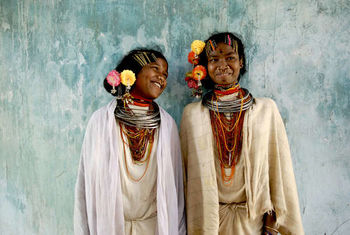The Attitude of Indian Government
There was a big difference in the attitudes of the State and National government in Odisha and Delhi, towards the Dongria. It was complex in that, there was a close link between the Odisha government's interests and the success of the Mine. The Odisha government was very strongly in favor of the mine going ahead, simply for Economic gains. The Ministry of Environment in Delhi had also green lighted things that under the process shouldn't have been.
However, Minister Jai Ram Ramesh was properly sympathetic, as was Rahul Gandhi -Leader of the largest party in India/ Indian National Congress. Rahul Gandhi went to Niyamgiri and showed his support against the mine. However, it was politically difficult for any of the national players to be "influenced" by international NGO's. Survival had a massive impact from the large number of letters they had sent to Minister Jai Ram Ramesh. There was a significant impact from detailed legal arguments Survial sent in while the court case was going on in the supreme court. While it was obvious that it had had a profound impact, it was important that it didn't look like that- it would've made Minister Ramesh look weak and easily influenced, especially by an international NGO.
The court cases mark an important factor in Survival's battle for the Dongrias. This was because it was the first time that the supreme court's ethical committee recommended strongly, very early on, that this Mine shouldn't be given the go ahead, yet the supreme court overruled its own committee. This had never happened before.
The Bharatiya Janata Party is the current party in power. The BJP was critical of the stance Rahul and Jai Ram Ramesh took. One of the first things the Modi government did was release a report by Intelligence agency that Survival International, Green Peace and Amnesty had, had a measurable negative impact on the GDP citing the Niyamgiri case. This nearly curtailed all of Survival's activities in India- no Survival UK person has been able to get a visa to go to India since.
Survival also made complaints to the OECD. The shareholders in Vedanta were very high profile and very important players in this- the Norwegian government who were shareholders pulled their money out- before involvement of survival. We put pressure on the Church of England and they pulled their money out and that had a very profound effect. I was lobbying some key share holders at the British parliament- there were a lot of different players involved. This was wider than survival.
We used every tactic we could think of, demonstrations, pressure on shareholders by directly lobbying them- the arch bishop of Canterbury- we made sure someone would ask him about Niyamgiri- so that there was public embarrassment for their association. We created a degree of notoriety that anyone associated with the infringement of the rights of the Dongria this was added in. We made sure it was always in the forefront of peoples minds. We did a lot of paralegal work, we made a film, our supporters sent letters, we lobbied UN, UK and Indian government officials.
None of this would've happened without the determination of the Dongria. They saved their mountain, we just helped make their voice louder but the victory was theirs.
“Survival is the global movement for tribal peoples’ rights. We’re the only organization that champions tribal peoples around the world. We help them defend their lives, protect their lands and determine their own futures.”
Survival was founded in 1969 by people who were horrified by the genocide of Amazonian Indians. Initially, they meager to no income, but functioned thanks to the efforts of dedicated volunteers. As they began to publish information, they began to receive support from international forums, including the UN.
Survival has supported numerous people globally, in their fight against the annihilation of tribal people, to give a voice to those who we oft turn an ignorant eye, and deaf ear to. Survival provides tribal communities a platform that allows people- like you and me- to witness the genocidal and structural violence, racism and slavery, and deprivation of human rights, daily. Survival has networks all over the world, with offices in London, Berlin, Madrid, Milan, Paris and San Francisco.
Today they continue to lobby the powerful to help the weak; to defend the lives and lands of people who should have the same rights as those who live in concrete forests.
While Survival in and of itself has no particular ideological composition, they strongly believe in making sure tribal peoples voices are heard and rights protected.
In the case of Dongria's fight against Vedanta, it was not just Survival that helped. There was a heterogeneous mix of people involved. The Dongria at the heart of the group that comprised resistance to Vedanta and are an incredibly strong and united community. Additonally, there were various local and national level activist and NGO's, international level organizations and agencies. Survival lobbied the Indian and UK government and the UN including CERD intensely. CERD finally took it up seriously with the Indian government.
Survival International is a unified organization. They operate across six country offices which all have charitable/nonprofit status.
The international secretariat is based in London and its board of trustees govern the entire movement. Regional offices are managed by their own boards.
Survival's board members bring great expertise in a variety of different fields, from indigenous rights to journalism, via accountancy and the law.
Survival is funded almost entirely by the general public. Their merchandise and trusts and foundations also contribute to their work. That’s what guarantees our powerful and independent voice.

